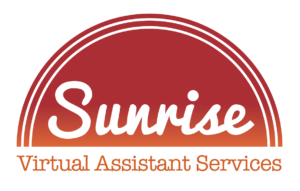Being autistic in the workplace presents unique challenges and opportunities. However, creating an environment that fosters open communication and mutual understanding is crucial.
Navigating social interactions and workplace norms can be daunting for many autistic individuals, yet with the right support and strategies, they can thrive and make significant contributions to their teams. This guide aims to empower those who are autistic in the workplace to ask for help when needed, ensuring a fulfilling and productive professional experience.
Being Autistic in the Workplace
Autism Spectrum Disorder (ASD) is a well known developmental disorder that affects communication, behavior, and socialization skills.
While each individual’s experience with ASD is unique, common traits include difficulties in verbal and nonverbal communication, sensory sensitivities, and rigid thinking patterns. These challenges can certainly (and, understandably so) make it difficult to navigate the workplace environment effectively.
However, being autistic also brings valuable strengths, such as attention to detail, strong analytical skills, and a unique perspective. It is crucial to recognize and celebrate these strengths while also understanding and accommodating the additional challenges that come with being autistic.
Common Workplace Challenges
When Worlds Collide: Navigating Normiesville
Ah, the workplace—a melting pot where neurodiverse employees and the neurotypical people (affectionately known as “normies”) mix.
It’s like a sitcom where everyone forgot to give you the script and sometimes even the joke! Imagine trying to decode sarcasm without subtitles or mastering the art of small talk when you’d rather discuss the fascinating life cycle of the noble sea cucumber. Neurodivergent individuals face the thrilling challenge of translating “normie” into something that doesn’t feel like cracking the Enigma Code before the morning coffee kicks in.
Picture this: Neurotypical employees love their impromptu chats by the water cooler while you’re there meticulously planning your words, only to say, “The weather is…yes.” Or the social intricacies of distinguishing between a “We should do lunch” that means “I am being polite but would rather eat my shoe” and a genuine invitation. It’s an art, a science, and sometimes, a comedy of errors.
Then, there’s the sensory Olympics. What’s a comfortable hum of activity for some can be a cacophony of distractions for others. Picture trying to focus while the fluorescent lights decide to perform their best rendition of a strobe light, and your co-worker’s perfume aggressively decides to be your new BFF.
In the grand theater of the workplace, being neurodivergent means, you’re often improvising in a play where everyone else seems to have rehearsed. It’s a series of missed cues, overanalyzing the script, and occasionally, surprising everyone—yourself included—with an unexpected monologue on why the office should switch to LED lighting.
Ah, the joy of diversity!
The Struggle with Socializing as an Autistic in the Workplace
Small talk, office parties, team-building exercises—all these are essential aspects of workplace culture that may cause stress and anxiety for autistic workers. It’s not uncommon to feel overwhelmed by the expectations of social interactions in a professional setting.
For many autistic individuals, building relationships in workplace environments can be challenging as they struggle to understand nonverbal social cues and social norms. This can lead to having feelings of isolation, which may impact job satisfaction and performance.
Asking for help in these situations may seem daunting. However, it’s essential to remember that communication is crucial to establishing healthy relationships with colleagues and managers.
It’s okay to ask for clarification or support when needed, whether during a team project or a social event. Finding a trusted colleague or mentor who can provide true guidance and support can also be beneficial in navigating social situations in the workplace.
Strategies for Asking for Help
Asking for help as an autistic individual may seem intimidating, but it’s crucial to remember that it’s not a sign of weakness. It takes courage to acknowledge your needs and ask for support.
Here are some communication strategies that can help you ask for help in the workplace:
Clear Communication
When seeking support, especially if you need more clarification on something, clarity in communication is key.
Try to be as specific as possible about what you’re struggling with. Instead of saying, “I don’t get this,” try to pinpoint the exact aspect that’s confusing you, such as, “I’m having difficulty understanding how to implement this code in our project.” This approach makes it easier for others to provide the help you need and demonstrates your willingness to learn and contribute effectively.
Additionally, consider preparing your questions in advance. This can reduce anxiety and ensure that you cover all the points you need assistance with. If possible, write down your questions or key points to remember so you can refer to them during the conversation. This preparation helps make your request for help clear and concise.
Remember, verbal communication is a two-way street. Be open to feedback and ask for clarification if the response needs to fully address your concerns. Encourage an open dialogue by expressing gratitude for the assistance and being willing to engage in further discussion if required. These strategies can help build a cooperative and supportive atmosphere, making it easier to ask for help in the future.
Advocate for reasonable accommodations
The Americans with Disabilities Act (ADA) requires all US employers to provide reasonable accommodations for all individuals with disabilities, including those with ASD. This may include changing the work environment or job duties to enable you to perform your tasks effectively.
These accommodations are tailored to address the specific needs of the employee without causing undue hardship to the employer. For instance, expecting the office to ban common practices like microwaving fish may not be deemed reasonable due to its minor and subjective impact (although if you dislike strong smells due to sensory overload, this author is in total agreement).
However, requesting adjustments such as dimming overly bright lights or allocating a quiet workspace free from frequent disturbances aligns with practical and often necessary accommodations. These modifications help create a workspace that respects individual sensory sensitivities and supports productivity.
Asking for reasonable workplace accommodations can be daunting, but remember that it’s your right as an employee. It’s essential to articulate how specific accommodations could benefit your performance and contribute to the team’s overall success. Consult with a trusted colleague or mentor for support in navigating these conversations, and be prepared to possibly provide documentation from a healthcare professional if needed.
Seek out mentors or support groups
Finding a mentor or joining a support group can provide valuable guidance and understanding in navigating workplace challenges. These individuals or groups can offer advice and support based on their own experiences, helping you feel less alone in your struggles. They can also serve as a source of encouragement and inspiration, showing that it is possible to succeed in the workplace as an autistic individual.
Inclusive communities, such as AudHD Asset on Facebook, possess a profound understanding of the intricacies of neurodiversity in professional environments. They deliver targeted support and personalized guidance drawn from practical experience, which can truly transform the professional journeys of neurodivergent individuals seeking assistance.
Utilize Technology for Initial Communication
In today’s digital age, technology can be a valuable tool for those who find direct, face-to-face communication challenging, especially in social situations. If direct conversations seem daunting, consider using emails, messaging apps, or project management tools as preliminary channels to ask for help. This approach allows you to articulate your thoughts and requests more clearly without the immediate pressure of a live conversation.
For instance, if an upcoming team-building event is causing anxiety, sending a thoughtful email to a fellow employee explaining your concerns and seeking advice can be a practical first step. This method allows the recipient to consider your request thoroughly and respond with thoughtful advice or support.
Furthermore, initiating communication through technology can build a foundation of comfort and familiarity, which might make in-person interactions feel less intimidating over time.
Build a Script for Common Interactions
Remember the script we talked about earlier? Why not make your own?
Having a script ready for everyday workplace situations can also greatly assist in initiating conversations and asking for help. Scripting involves preparing responses or questions ahead of time for scenarios you anticipate encountering.
For example, if you need assistance with a project, you could write down phrases like, “Could we schedule some time to go over the tasks I’m unsure about?” or “I’ve been having some trouble with this part of the project, can you help me understand it better?” These prepared scripts can reduce anxiety and make it easier to initiate dialogue. They also ensure that your communication is clear and direct, addressing your needs effectively.
Over time, as you become more comfortable with these interactions, you may find that you rely less on scripted responses and more on spontaneous communication. However, having these scripts as a backup can provide a sense of security and confidence.
Conclusion
Asking for help as an autistic in the workplace can be challenging. There really isn’t any other way to put it!
However, by being open to communication, advocating for reasonable accommodations, seeking out mentors or support groups, utilizing technology, and building scripts, you can overcome these challenges and effectively ask for help in the workplace.
Always communicate clearly and openly (make eye contact if you can), prepare your questions in advance, and be open to feedback. With these strategies, you can create a supportive and productive work environment for yourself and succeed in your career as an autistic individual.
So don’t be afraid to speak up and ask for help when needed – it’s an essential step towards personal growth and success. Once you master the art of asking for help, you will find that it becomes easier over time.


